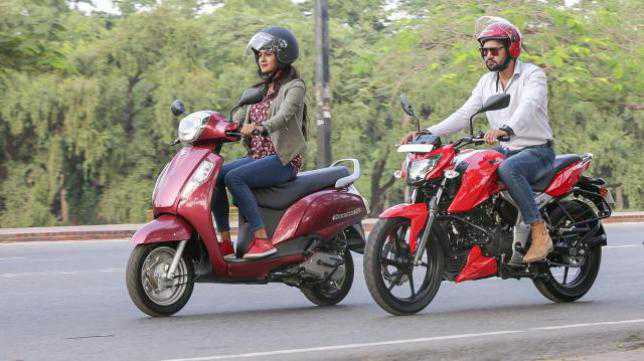Motorbike industry revs up in Bangladesh

Image collected
No more imports. The motorbike industry in Bangladesh is revving up with the steadily increasing demand for the two-wheelers in the country.
Domestic production has pushed down prices of the bikes by nearly half.
Back in 2016, a reputed brand bike cost Tk 149,000. Now it costs just Tk 97,000. Low prices have increased the demand for the two-wheeled vehicles significantly.
Chiefly, two things brought down the bike prices. Firstly, domestic production has exempted tariff. Secondly, aggressive marketing has successfully captured the market.
Six renowned international brands are now in Bangladesh -- India’s Bajaj Auto, TVS Motor and Hero MotoCorp while Japan’s Honda Motor, Suzuki, and Yamaha Motor and only domestic brand Runner Motors.
Some of the foreign firms have set up joint venture manufacturing plants while some have been set up solely by the domestic investment with technical help from the mother companies.
Though the industry is still in the preliminary stages, the manufacturers are also eager to build industries affiliated to the booming sector.
Same story in India
A few decades ago, the motorcycle industry kicked off in India in the same manner. In 1955, for instance, India’s Madras Motors jointly with British Royal Enfield started an assembly factory. Later in 1944, Bajaj started importing motorbikes and now it is been a giant manufacturer of the two-wheeled vehicles.
Likewise, TVS began its joint venture with Japan’s Suzuki Corporation in 1982. India’s Hero earlier used to produce only bicycles. In 1984, it started producing motorcycles jointly with Japan’s Honda Motor Corporation. Now, Hero, Bajaj and TVS are the big names in bikes in India.
Inception of Bangladesh’s motorbike industry
In Bangladesh, the journey began nearly 15 years ago through assembling. But, it added small value to the industries. Later, in 2016-17 fiscal, the government offered tariff exemption on condition of domestic production of the bikes.
Following the government’s declaration, the National Revenue Board (NBR), said to earn recognition as a manufacturer, one of the five key components including the chassis should be made inside the country.
Later, the Ministry of Industries formulated a policy for the development of the motorbike industry.
There are three types of the tariff on motorbike production. Those who produce some specific parts are charged 28-30 per cent as tariffs while those who do not so have to give up to 59 per cent tariff.
On the other hand, those who export a complete motorcycle have to pay 151 per cent as tariff.
Prospects are huge
A market research conducted by the Japanese multinational company Yamaha says one of 161 persons in Bangladesh uses a motorbike. The proportion is 1:20 in India while 1:4 in Vietnam, Thailand, and Malaysia.
Entrepreneurs see promising prospects for the local motorbike industry.
As per the sales records of the companies, 180,000 motorbikes were sold in 2015. This rose to 387,000 in 2017 and later to nearly 500,000 in 2018.
The entrepreneurs hope that the number will rise to one million by 2023.
By then Bangladesh will also join the motorbike export market. Bangladesh’s Runner is already being exported.
Bangladesh Honda Limited’s finance and business division’s chief Shah Md Ashikur Rahman said the government forecasts that the motorbike sales will go up to one million by 2027, but in reality, the target will be achieved long beforehand.
He said it is a very bright sector. If the government continues assisting, this sector will move ahead.
Four demands
According to the entrepreneurs, the motorbike industry demands four things. Firstly, the development of associated industries where spare parts will be produced. Secondly, lowering motorbike’s registration fees and making the process easier. Thirdly, loan opportunities to buy motorbikes. And fourthly, training for bike riding.
Bangladesh’s Yamaha motorbike manufacturer ACI Motors’ executive director Subrata Ranjan Das said a bank in Vietnam disbursed TK 2.50 billion as loans for the people to buy bikes.
In Bangladesh too, customers have that opportunity to buy bikes, but difficult loan processes are discouraging students and unemployed.
Source: https://en.prothomalo.com
Previous Story
- RPower 'ideally' placed for strong performance: Anil Ambani
- 48 selected for industry sector CIP status
- Bangladesh government pledges rooftop PV on all its...
- The future of the automobile industry in Bangladesh
- Bangladesh achieves silent revolution in automobile industry
- Trying times for our RMG sector
- Industries minister: Payra seaport to turn Bangladesh into...
- Apparel Brands Shouldn’t Confuse ‘Nearshoring’ with Ethical Production